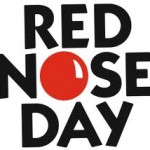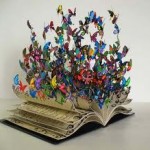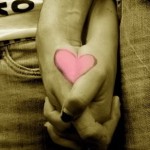
Thanks for popping back this evening to read the second half of this lovely interview. If you didnt read the previous posts click here to have a read.
Like I said in my opening last night one of the main reasons for asking to Emmanuel to chat was for me to learn more about how we, as helpers, look after ourselves. Also a couple of years back I hosted a roundtable for siblings who had someone missing – it was the first time many of them had been given the chance to share their story. Their story away from the glare of their parents, away from other people’s interpretation and without having to worry what their words might mean to others.
These ideas shaped the remainder of my questions.
Here it is….love and light to you all x
Working in the trauma field how do you manage looking after you?
To be honest I probably look after myself rather badly. Part of my job is listening to other people’s problems and trying to help them in some way. I always thought if I listened to other people’s problems then I could forget about my own to some extent and not have to worry about what wasn’t working in my own life. The problem with that is that your own problems never really go away and at some point you will need to face your own issues.
Self-care and being kind to yourself is definitely something that you are aware of when you work as a counsellor and it is something that gets discussed in supervision especially. I think it is important to have rostered days off and not to feel guilty about them. When you do it is important to do something nice for yourself and to enjoy it.
The hardest lesson to learn is not to take work home. In the early days of my career I was very bad at that and would think about clients on the bus or at dinner and even before going bed. The more experience you get the easier it becomes to switch off and to detach from work at home.
One important element in all of this is never to talk about work at home or socially. Friends and family have a curious fascination about your job when they know you are a counsellor. Other than the obvious privacy and confidentiality issues, I find it is easier not to talk about work generally when out socially. Having a clear distinction between your life at work and your life outside of work is very important.
Some things I do specifically to take care of myself include going for long walks and learning to meditate. After spending an 8-hour day listening to people talk and then responding in turn, it is very nice to not have to do that when you get home. It is important to me to have that down time when I first get home of not having to engage in any conversation and to spend some time unwinding. I need at least an hour when I get through the front door to unwind and switch off.
The flip side of that is that when you have a particularly bad day or are working on a case that challenges you and pushes your buttons it is important to talk about it in supervision and with your manager so as not to take it home. Having a high level of self-awareness is also very important because you need to know what pushes your buttons and why. If you know the answers to those questions then you usually know what you have to do to address the issue.
Does the wider community understand the losses you have endured – do you feel confident to speak about your experiences?
I often talk about my brother’s death with those closest to me both personally and professionally. When my brother died I got an enormous amount of love and support from work colleagues. All my team came to his funeral and most of them had never met him. The support I got from work colleagues made it easier to talk about.
On the downside I can’t hide from it either. Now that it has been nearly 5 years since he died it isn’t as easy to say to them I am having a bad day because I miss my brother. People look at you funny as if to say, “how much longer is this going to go on,†or “aren’t you over it yet.†I am more selective with what I tell them now. I am open about his birthday and anniversary of his death and Christmas being a hard time, but find that I talk about him less and less at work because I no longer get the support and understanding I did initially.
My brother died on a Thursday and for the longest time Thursday was the worst possible day of the week for me. I could barely function and I could hardly breathe or cope with work but somehow you find a way through it. I would get home as quickly as I could and then I would lock myself in my house and close all the lights and just sit and stare in the darkness and allow myself to feel the grief. I don’t do that anymore but I think for the first 2 years every Thursday was like that. Now I can get through most Thursday’s without feeling this way but if I have a bad Thursday I won’t talk about it because it takes more effort to explain why rather than living through it.
With regards to family and friends it is often hit and miss these days. Many members of my family that were close to him miss him just as much as I do. My brother’s death has had a devastating impact on lots of people. Yet any discussion about him is left to me to generate. They often say to me we don’t want to upset you by mentioning his name and talking about him, but sometimes I wish they would! Not talking about him and my paranoia that they may have forgotten him is infuriating at times and I wish they would communicate more about what they are thinking and feeling.
Most of my friends have been very supportive and have been an excellent outlet for me, but they have also been the ones who have said some of the most hurtful things. I saw a bereavement counsellor for over 2 years after Theo died and I remember talking to a very close friend of mine about the fact that it was coming to an end and how anxious I felt about that. Her response was – “it is about time you stopped seeing the counsellor – now he can finally support someone that needs it!â€ÂÂ
What do you think people need to know to understand more about sibling loss?
Bereaved siblings are often called the ‘forgotten mourners.’ All the attention whether rightly or wrongly seems to go to the parents and any other surviving family members that your sibling has (i.e. spouse/ children). As a sibling you are made to feel that your grief is not as important and for some reason you are never able to fully acknowledge the devastation that you feel at your sibling’s death.
Anniversaries and holidays are especially difficult because for some reason most people ask you “how are mum and dad coping?†It amazes me that these people never stop to think that I may not be coping or that I may need someone to talk to at these times. Christmas especially is like that. My brother loved Christmas and would get excited about decorating the house and buying presents for those he loved. We haven’t decorated the house since he died and I find it hard to celebrate at all, but we force ourselves to do so knowing how much he loved it.
Prior to my brother’s death I never would have thought that there was such a thing as competition or a hierarchy of grief, but as a bereaved sibling you are constantly made to feel as if your grief is not as important as what others may be and you are definitely made to feel as if you are at the bottom of the pecking order.
When my brother first died I thought that it would be fairly easy to find some literature and books on sibling grief. Reading has always been an outlet for me and I respond well to structure and guidelines. To my astonishment that was not the case. If I was lucky enough to find a section in a bookshop that had more than one book in that area, inevitably there were no books on sibling grief. There are books on just about every other type of grief but yet again siblings are largely non-existent in the literary world.
Similarly I thought it would be helpful to join a group where I could listen to other bereaved siblings and hear what they had to say and how they deal with their grief. Yet again this proved to be virtually impossible. To the best of my knowledge there is no adult bereaved sibling group in the whole of NSW. Young children who are bereaved siblings get lots of support and interventions and yet are left to fend for themselves when they become adults.
So I took matters into my own hands and created a support group for adult bereaved siblings. I joined The Compassionate Friends NSW which is a worldwide volunteer organisation supporting bereaved family members. Through lots of advocacy and hard work I established its first adult bereaved sibling support group in April 2008. I subsequently also became the siblings representative on their council for a 2 year period.
Society in general just doesn’t recognise adult sibling grief. I think part of the reason is that people are surprised to know that my brother and I were very close and I miss him dreadfully. As adults we sometimes have antagonistic relationships with our siblings and there is this perception that adult siblings aren’t as close as they were when they were younger. This is not always the case. Through my group I have met many adult siblings who had positive and loving relationships with their siblings and who feel the same way I do.
I don’t know why sibling grief is not more widely recognised or considered in any way. Especially as an adult I feel that there are certain expectations that I am able to ‘cope’ better than I have and I feel a lot of judgement when I tell people that I still have bad days and find it hard to get out of bed and do what I have to do. People’s initial response is something like “aren’t you over it yet,†or “it has been nearly 5 years and you really need to move on.â€ÂÂ
Of course on a superficial level I have moved on. I continue to work and eat and sleep and go through the motions of living my life. I have travelled and am currently studying and generally do everything I can to keep myself busy. Yet there is a part of me that died the day my brother died and that part of me will never be brought back to life. As much as I want to I cannot pretend that my brother hasn’t died and that his death hasn’t affected me in profound ways. I just do the best I can to get through each day the only way I know how. By the same token I don’t mean to paint a bleak picture and I am not severely depressed or suicidal. I just think it is important to acknowledge the sadness I feel and the reasons why.
The best advice I have received since my brother died is 2 very simple things. A good friend of mine in America wrote to me in the days after my brother’s death and she said to me that all I needed to do was to put one foot in front of the other and to try to keep walking – left foot/ right foot/ left foot/ right foot etc. I didn’t need to do anything more than that in the early days. That took an amazing amount of effort in itself but was something I could relate to.
The other piece of advice I received was to remember to breathe. As simple as it sounds it was something I would often forget to do. When things are so overwhelming and I feel as if I can’t possibly go on and the pain and grief is unbearable all I have to do is simply remember to breathe. Just breathe.
So as simple as it sounds and for whatever it is worth, that has become my mantra now and I remind myself of it on a daily basis – remember to put one foot in front of the other and to breathe whilst I am doing it!
——————————–
I dont have any questions to pose at the end of this. I just think that its important to sit with the words. Thanks M x









